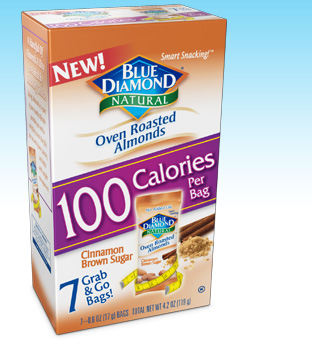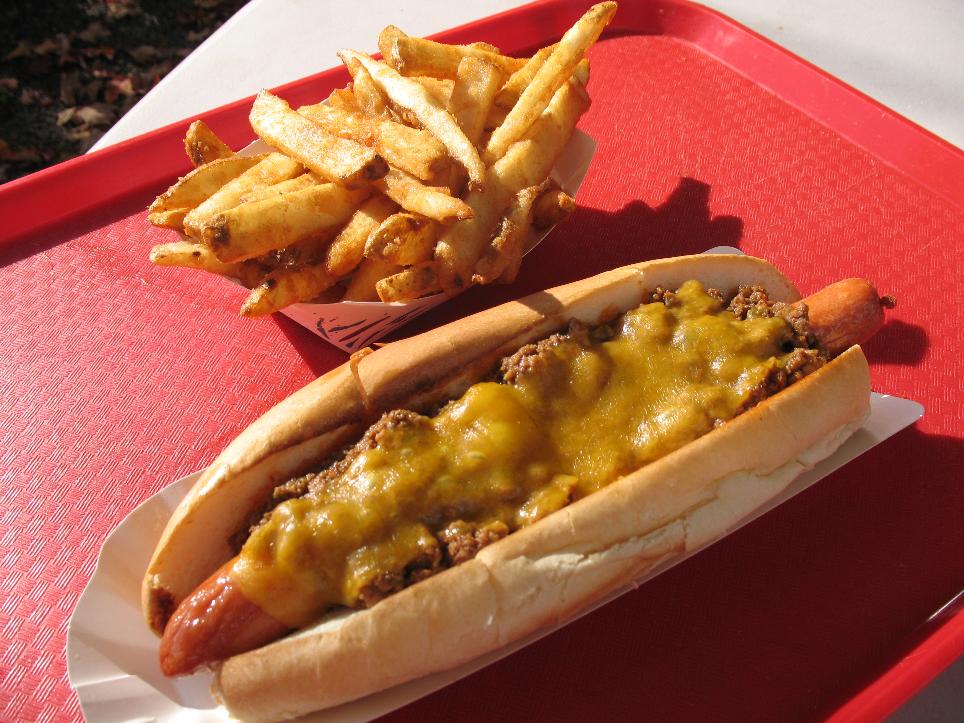Abs Diet: Stress and Weight Gain
Like just about everyone else I know, I'm pretty much stressed out to the max. I have family issues. Work issues. Love life issues. And that Edie on Desperate Housewives . . . oh, she makes me so mad!
All this anxiety isn't good for us. You probably already know that stress can raise your blood pressure, diminish your sex drive, and cause excessive horn-blowing in traffic. But did you know it's one of the biggest factors in determining your weight, as well? Here's why.
Stress Changes Your Body
Stress isn't just something you feel in your head. It's something that trickles all throughout your body. Under stress, your body produces two hormones: adrenaline and cortisol. Adrenaline is like lighter fluid, and cortisol is like charcoal. The former quickly burns off the immediately available sugar in your blood, so you can fight or flee whatever is stressing you. Cortisol continues to fuel the fire, pumping more sugar into your blood so you have energy to burn. The problem is that excess sugar coursing through your blood is meant to help you flee the saber-toothed tiger or battle the charging wild boar. It's made to be burned off quickly as you either escape or attack. When the stress comes in a more modern form — like a pressing deadline or a stack of unpaid bills — you can't literally fight back or flee. And without that burst of physical activity, you don't have the chance to burn off that extra blood sugar. Instead, it gets stored in your belly as fat.
Every time you feel anxious over those bills or deadlines, there's more mush added around your middle. In a recent study at Yale, women who were most susceptible to stress had both higher levels of cortisol and greater abdominal fat than nonstressed women. And the ladies under stress stored fat primarily in one place: their bellies.
Stress Incites Your Cravings
You know the kid in school who always egged you on to do the things you didn't want to do—throw spitballs, trip the math-club president in the cafeteria, or touch your tongue to the frozen street sign? That's what stress is: the instigator. It goads you to do things you know aren't good for you, and under pressure, you cave in and do them anyway.
If you reach for chow when you're stressed, it's not because you're weak. It's because you're programmed to do that. Researchers at the University of California, San Francisco, have identified a biochemical feedback system in rats that could explain our stress/craving connection. In their study, the researchers determined that stress stimulated a flood of hormones that prompted the rats to engage in pleasure-seeking behaviors like eating high-calorie foods. While observing pleasure-seeking responses in rats might explain a lot about Charlie Sheen, what does it say about the rest of us? Well, a study done at Yale University found that people with higher stress-induced cortisol levels ate more food — including more sweets — than people with lower cortisol levels.
Stress Keeps You -- And Your Weight -- Up
A University of Chicago study showed that men who slept only 4 hours a night had cortisol levels 37 percent higher than men who got a full 8 hours. Men who stayed awake the whole night had levels 45 percent higher than the well-rested guys. And remember, increased cortisol equals more fat stored in your belly. Another study tracked the work habits and weights of nearly 1,800 men over a 12-month period and found that those who regularly logged late hours were 36 percent more likely to tip the scales at above-normal weights than the 9-to-5ers.
That's another reason why letting go of stress is an important step toward letting go of pounds. Another University of Chicago study showed that men who were relaxed enough to get deep, quality sleep secreted almost 65 percent more human growth hormone (HGH) than men who didn't fall into deep sleep. Why is HGH important? It helps prevent the loss of muscle mass that can be caused by cortisol. And muscle mass helps you burn calories and maintain a constantly burning metabolism.
Stress Changes Your Decisions
Sure, you have every intention of eating right. But when dinner is something that can be considered only in the 15 seconds of free time you have each evening, it’s awfully tempting to swing through the drive-thru and pick up something that's ready faster than you can say, “I'll have fries with that.” More and more research is showing that a journey to the fast-food emporium is almost as dangerous as a hunting trip with Dick Cheney. Consider:
• One study found that fast food increases the risk of obesity and type 2 diabetes. Subjects who consumed fast food just two or more times a week gained about 10 more pounds than participants who consumed fast food less than once per week.
• The high-fat, high-carbohydrate content of fast food messes up your blood vessels. A University of Buffalo study found that levels of arterial inflammation remained high for 3 to 4 hours after a high-fat meal. (The study was conducted using an Egg McMuffin and hash browns.)
• Soda contains high levels of high-fructose corn syrup, an evil we discussed in chapter 1. On average, we drink 50 gallons of soda per person per year. Yes, you read that right.
• Fast and convenient foods are soaked with trans fats. In a 9-year study of more than 16,500 men, researchers found that for every 2 percent increase in trans fat intake, men added one-third of an inch to their waists. (Mono- and polyunsaturated fats had no effect.) Plus, an 80,000-person Harvard study found that getting just 3 percent of your daily calories from trans fats increases your risk of heart disease by up to 50 percent. To put that in perspective, 3 percent of your day's calories totals about 7 grams of trans fats — that's roughly the amount in a single order of fries.
So Now What?
Okay, so this is the point in the book where I tell you to relax, not work so hard, and get more sleep. That would also make it the point at which you close the book, hurl it across the room, and start cursing my ancestors. So let's see if we can find a better way, shall we?
Like I said at the top of this chapter, I’m just as stressed as you are. I don't have any magical solutions for finding relaxation and inner peace, and I can't call your boss, your kids, your spouse, and your creditors and tell them to back off. (Well, I could, but I'd have to charge you a lot more for this book.)
Instead, we need to learn to embrace the stress in our lives and start making it work for us. Not to get all new-agey on you (incense is not my thing), but the fact is, we need stress. For example, too much cortisol may force us to gain weight, but too little isn't good for us, either. We need cortisol to help with organ function. Too much stress may make us confused, anxious, and angry, but too little stress makes us bored — and boring.
So the point of this book is to help you manage your stress and undo the evils that it can wreak upon you. As long as you have the quick and easy meals and healthy ingredients outlined beginning in chapter 4, you'll have a great weapon with which to battle the ravages of stress. You'll always have healthy food at your fingertips, so you won’t be at the mercy of the drive-thru. You'll always be full, so you won't reach for an unhealthy snack when deadlines approach. And you'll have all the food you want in the time you have, so you can get back to what's really important in life — like trying to figure out who's who on Lost.
In the following chapters, you'll learn techniques that will help you take control of your time and your food by:
• Planning your meals one day at a time, so you can avoid impulsive decisions
• Eating six times a day to avoid extreme hunger ups and downs
• Making your own meals, so you know exactly what ingredients are being used and, more important, which belly-inflating ones aren't
You can fight stress with food. With good food. With Powerfoods.
With food that takes less than 6 minutes to make.
-
NEW STUDY: Why Lack of Sleep Makes You Fat
A good night’s sleep won’t just help you look more attractive—it’ll al
-
Video Killed . . . You
It’s no secret that watching loads of TV is bad for your health. But r
-
Abs Diet: Healthy Snacks or Trans Fat
Partially hydrogenated oils are everywhere. You cant eliminate them fr
-
Lose Weight With 6 Meals a Day
Some things are sadly predictable. Extra winter poundage, for instance
-
Diet Strategies: Exercise and Weight Loss
Besides using up calories, exercise helps your brain stick to a diet.
-
The Real Reason You’re Gaining Weight
Can’t figure out why on earth you keep gaining weight? Before you star
- DON'T MISS
- Are You Normal?
- Dont Let Your Date Derail You:
- Abs Diet: Weight Plate Exercises
- The Truth About Belly Fat
- How to Lose Weight with Your Spouse
- The Best Diet to Keep Weight Off
- Abs Diet: Green Vegetable Recipes
- Exercises That Will Increase Your Metabolism
- 71 Ways to Lose Fat
- Weight Loss: Abs Diet Breakfast Foods




